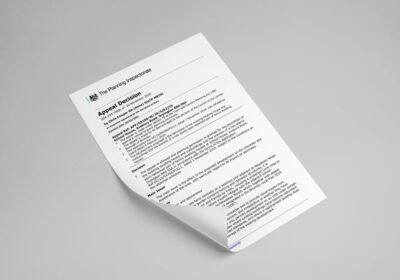Making predictions for 2021 is perhaps a little easier than some years. For a start, it’s a racing certainty the country will be in some form of lock down for a further six months. This will dictate the pace and the nature of the trends and transactions will we witness in the property development world. However, this doesn’t mean we’re on for a flat year as we attempt to resurrect the UK. Here are my five key predictions for the property development world:
- Pricing is likely to hold up
Much to the surprise of many, 2020 was a good year in the main for residential pricing with the stamp duty exemption adding some fuel. There was less good news for commercial markets with non-core assets struggling and people putting on hold planned moves. Of course, the retail sector has experienced a terrible period with lock down accelerating the decline of many of our high streets.
Back to housing, unlike the last recession, annual supply was consistently falling short of demand, a lag effect of Brexit. This provided a degree of cushion. Stamp duty exemptions will end in April and will put the brakes on the speed of the recovery. With lockdowns continuing, it is likely that 2021 will see a rather muted year overall in pricing but don’t expect to see any sharp drops. There are still a lot of potential home owners and home movers out there for the right location.
- Big urban regen could stall
There is just too much uncertainty at the moment and many question marks over the future of cities. My view is that big schemes taking bets on emerging locations are likely to adopt a wait and see approach. That will keep the planning system busy as developers tweak and amend projects but it will mean diggers lay idle.
With much of the public sector in crisis mode, I also don’t expect a lot of proactive master planning to take place unless infrastructure investment has already been committed. Unfortunately, this will also mean little resource and headspace to try and reverse the fortunes of many of the UK’s distressed high streets.
- Planning reform likely to be further watered down
Robert Jenrick’s planning reforms may have merits but not when it comes to timing. With the industry and local authorities still coming to terms with what the pandemic might mean the last thing everyone wants is a radical set of planning changes.
The proposals are already being watered down following the ‘mutant algorithm’ upset and I would expect more resistance to come. The problem is that in a virtual world, there is only so much effective consultation that can be done. Yes, there has been a lot of written consultation responses received. I am also sure our Ministers will feel they have done their fair share of virtual round tables. However, without actually getting out and talking to people properly and winning hearts and minds, these proposals may well find themselves on very shaky ground.
There is a good chance the reforms are going to run into more trouble. I would expect feisty resistance over the proposals for an Infrastructure Levy as currently drafted, should it make it out of the cutting room of course. More on this in a future blog post.
- Virtual planning here to stay, warts and all
2020 was the year where everyone got to know the planning committee system better. Many Local Authority Chief Executives, when they surface for air, will be aghast at how Committees are being handled and how they are reaching decisions.
There have been some examples of good practice out there, but for many it has shone a less than positive light into the world of planning committee decision making. One of the challenges has been how you maintain joined up government between Lead Members, Committee Members and Officers when everyone is working remotely. It just isn’t working well enough in many places much to the frustration of senior officers and applicants.
An upside for the sector has been getting to understand how these Committees are managed in different areas and it will almost certainly have an effect on individual future investment decisions. Despite the sometimes chaotic and comic scenes that have emerged as local democracy finds its feet in the world of Zoom, my feeling is that this is a fixture here to stay for 2021. It will certainly change investment behavior but in the long run, will it also change Committee behavior?
- Leasehold revolution on its way
Just before we all switched off our computers before Christmas, the Ministry put out a statement confirming its commitment to leasehold reform with legislation in 2021. The changes are radical with a move a way from leaseholds to commonholds. Leaseholders will have far more say and responsibility over the buildings they inhabit. The changes will result in the end of ground rents something particularly troubling for the retirement housing sector and give leaseholders the right to extend their interests for up to 999 years. There is much detail yet to be published but this is likely to result in a big shake up of the sector and a field day for solicitors. We await publication with much interest.










